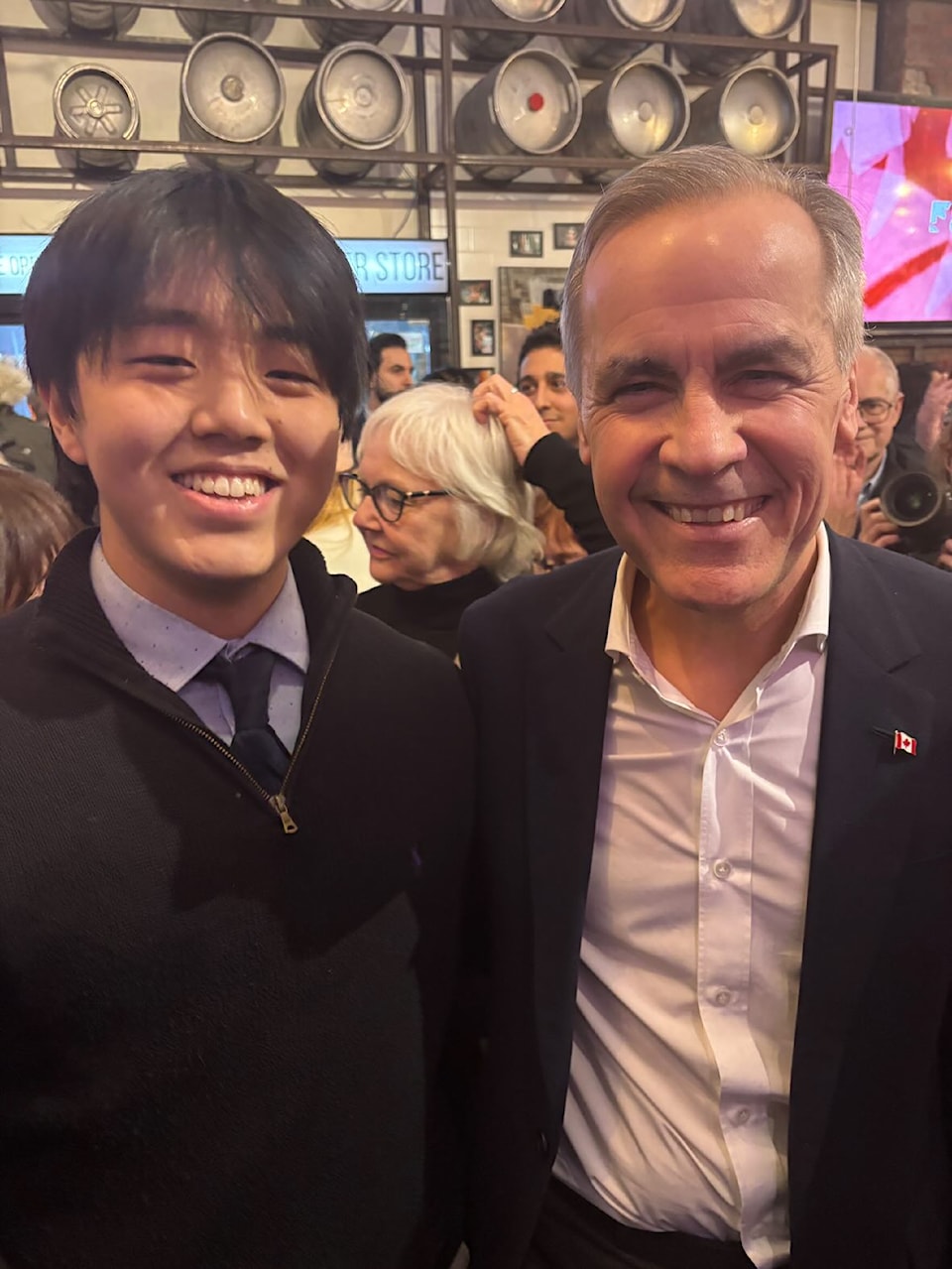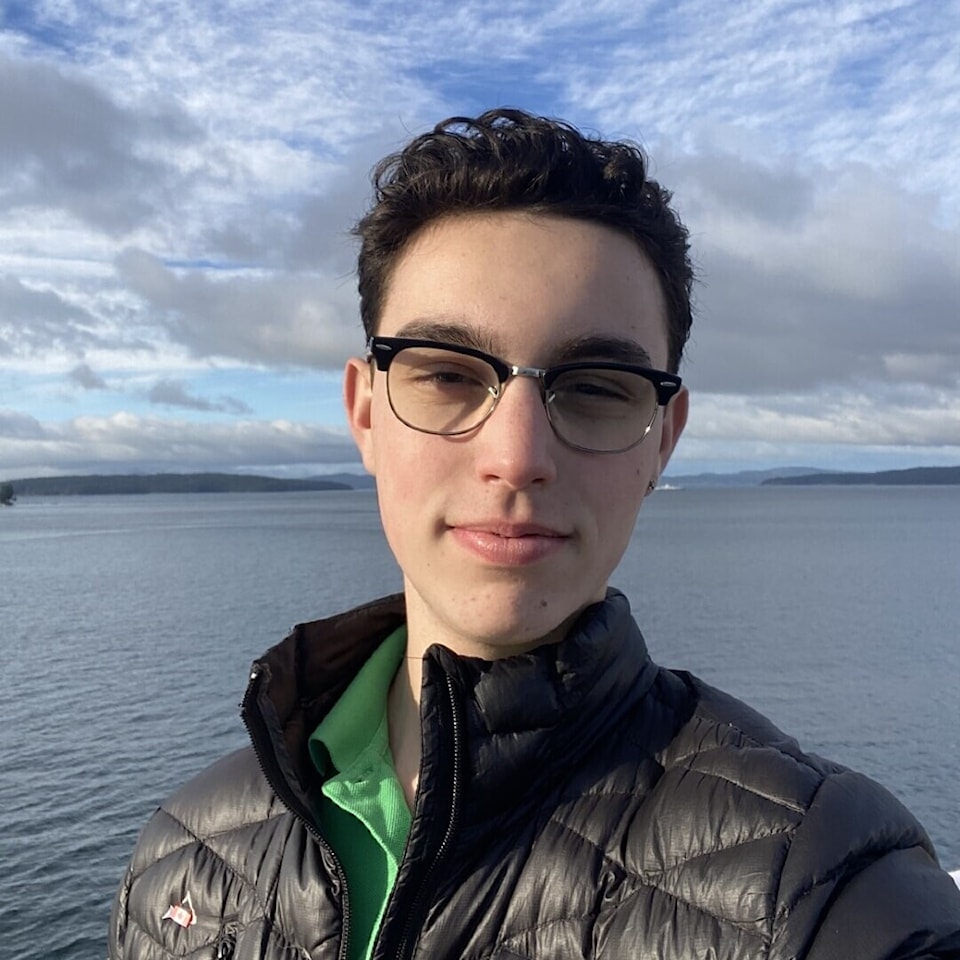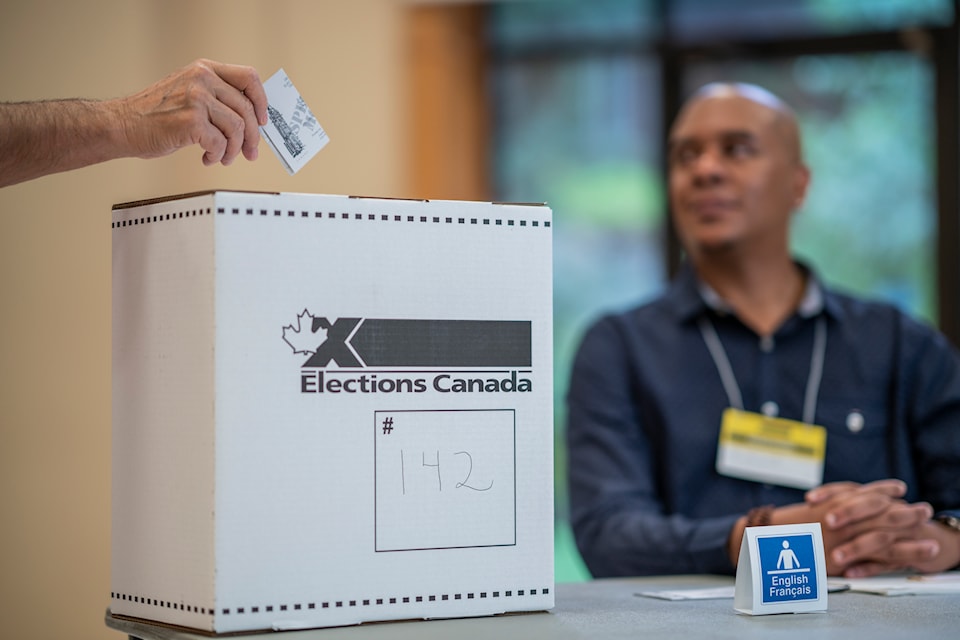Catherine Lopez considers herself a simple person. The Humber Polytechnic Sports Management student gets most of her news from social media, she shares posts to causes she believes are important to her Instagram story.
Despite this, Lopez chooses not to vote during elections.
The 20-year-old said the voting system feels too general and stressful to her, with any contribution she makes feeling barely worthwhile.
“How is my vote really going to change anything? I think it will just stress me out because I can’t change anything anyways,” she said.
Lopez is part of the growing statistics of young Canadians who choose not to vote in every election. According to statistics from Elections Canada, voters aged 18-24 have been on a decline since 2000.
The organization also compared youth voter turnout to older generation turnout from the 2021 Federal election. Youth voters only had a turnout of 47 per cent, whilst older voters had a turnout of 75 per cent.

This sense of apathy and lack of interest is unsurprising to Daniel Park, an 18-year-old Liberal Party volunteer. The University of Toronto student was inspired to become more involved after realizing the impact of grassroots government policy both as a staffer and organizer.
Park said he is part of Liberal leader candidate Mark Carney's youth team. He said he looks up to his policies and how they benefit the youth of Ontario. For example, Carney said he plans to accelerate housing development so more young people can buy homes.
“A lot of apathy amongst the youth because they just think that politics is fake and it’s all a game, and I’ve seen that personally because, within my political spheres, there aren’t as many young people as there should be,” he said.
The Elections Canada statistics had a spike in young voter turnout from 2010 to 2015. The former marked a 59 per cent turnout, while the latter marked a 68 per cent turnout. Park said he attributes this to young people’s perspective of Trudeau for the first time.
“Young people saw Trudeau as someone who was young, energetic, and inspiring in contrast to Stephen Harper. But now you see candidates like Pierre Poilievre. If I’m a young person I’m like, oh they wouldn’t help my cause,” he said.
Jaden Braves, CEO and founder of Young Politicians Canada, echoes many of the statements Park made.
The 16-year-old first became involved in politics six years ago, carrying a resume that ranges from Federal Councillor with the board of directors to the Green Party, to the board of directors of the youth wing of NATO.

Young Politicians Canada is a not-for-profit organization Braves founded in 2023 to help encourage and empower youth governance and education in Canada.
Braves said social media, especially TikTok, is one of the major reasons the younger generation has so much pessimism when it comes to politics. He said social media is designed to create and drive hate against each other and believes people should stay off TikTok.
“When we continue to scroll, we’re getting fuel to be involved in activism, but we don’t understand the power of activism through voting. We don’t necessarily put the two and two together, even though they’re so correlated,” he said.
Braves said it doesn’t matter if political leaders such as Jagmeet Singh have a strong social media presence if it means there are still other political leaders using social media as a tool to turn Canadians against each other.
Pierre Poilievre is infamous for this throughout his presence on social media. For example, Poilievre tends to weaponize the slang “woke” in a way that divides Canadians.
The slang term refers to people who are attentive to societal issues. Poilievre uses it in ways such as an Instagram post emphasizing how he wants to end woke culture in the military, referring to banning trans people from the military.
Poilievre also utilizes it for a promotional video on social media X for his campaign, where he states he wants to “stand up to woke culture.”
Braves said one of his main philosophies regarding understanding why he cares so much about the political landscape comes from a conversation with Elissa Golberg, the ambassador of Canada to Italy.
He said the two came to the conclusion it came down to trust in government.
“[It] means whoever we elect, we can ensure and be proud that they are going to best represent us to the best of their capacity,” he said.
Park said he believes there needs to be carefully planned education for civics and politics in high school. Instead of being introduced to politics in Grade 10 Civics, he believes it should be introduced in middle school.
“And I think there should be some sort of civics class mandatory throughout Grades 9 through 12 because I truly think that politics is something that is unavoidable and will always come back to help you or make you worse off at one point in your life. You’re going to have to care about it eventually,” he said.
Braves said he believes there's a need to figure out a way to standardize the care of young voters, suggesting social media campaigns and organizations that focus on targeting the young demographics to vote.
The 16-year-old said there should be action taken on voter rights that allow 16-year-olds to vote and show up at the polls. He also echoes many of Park’s points to emphasize this.
“We can have a strong adjustment between Grade 10 curriculum learning about [voting], and Grade 11 maybe being able to participate in an actual election right out of the course, so we make it more interactive and interesting,” he said.
Park said he believes voting doesn’t just mean putting a checkmark beside a candidate’s name, it means voicing the idea and vision a person has for their community and making democracy better.
“If you didn’t vote because you didn’t want to, you should’ve still done something,” he said.
“Some of the elections, they’re decided by hundreds of votes and you can play a very strong role in these results in helping democracy function,” he said.


